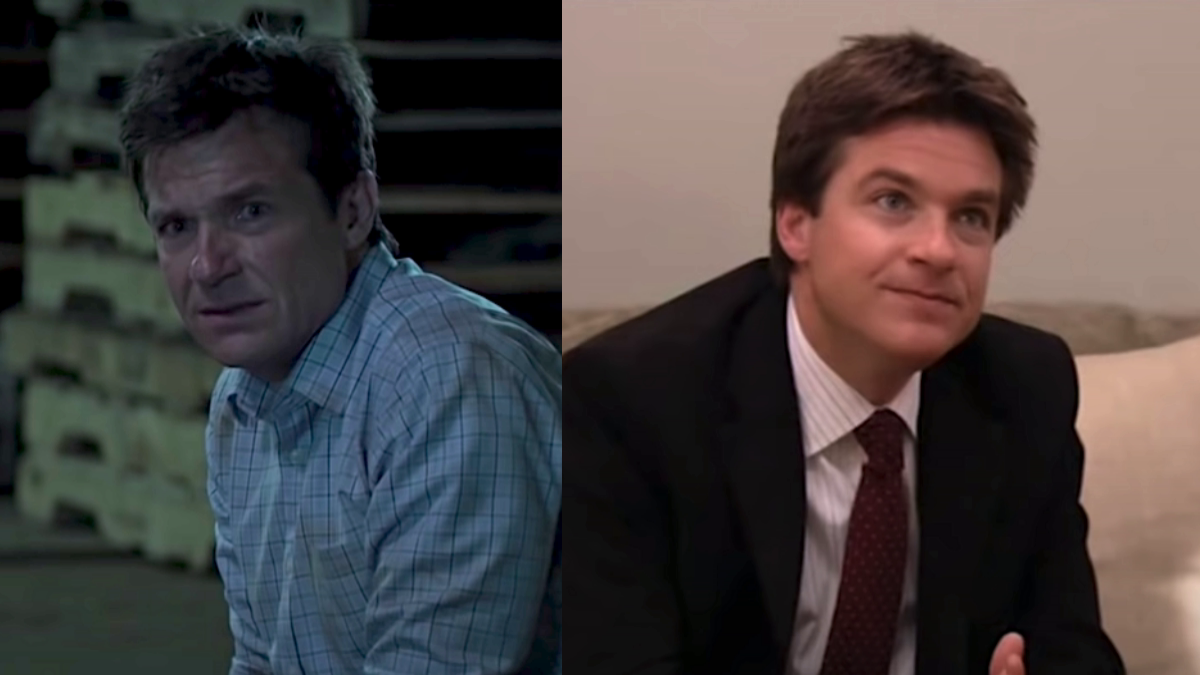The first installment of “Ozark” season four dropped on Netflix at the end of January, hooking fans back into the much-anticipated next chapter of the Byrde family drama with lead Jason Bateman at the helm.
It’s no surprise that “Ozark” — which follows Marty (Bateman) and Wendy Byrde (Laura Linney) and their two kids navigating life in Missouri after getting wrapped up in a money-laundering operation and working to get out from under the thumb of a Mexican drug cartel — is full of deception, murder, sex, drugs, and strife. It’s gritty, unsettling, and utterly captivating.
What is surprising, however, is that it mirrors another Bateman-centered masterpiece of an entirely different and comedic stripe: “Arrested Development,” one of the most cleverly written and acted sitcoms of the early 2000s and maybe all time, featuring Bateman as Michael Bluth, the one responsible son of his dysfunctional family’s grown children, tasked with managing their real estate business.
Both are spectacular, first and obviously, for their entertainment value. “Ozark’s” dark twists and turns, paired with its impeccable character development and complicated multi-family dynamics, evoke shock and awe.
It weaves a disquieting web of sometimes-noble, often-evil coverups that reveal the unsteadiness of living a lie. The moves and countermoves — of the Byrdes, the cartel, their rivals, and the unwitting pawns in their game — stack higher each episode, with an endless supply of hiccups that threaten to topple the entire structure like high-stakes Jenga.
Can the Byrdes trust Ruth Langmore? Can Ruth trust the Byrdes or just Marty? Will the body stay hidden, or will somebody spill the beans of where it’s stashed — accidentally or for revenge? Whose team are the kids on, and what happens when parents shatter confidence? What’s the consequence of murder? How about the consequence of lying to cover it up? It’s an endless barrage of complex questions.
Likewise, to say “Arrested Development” is entertaining is an understatement. Talk about weaving a complicated web; you’ll discover new jokes every time you watch the series (at least the first few seasons before its decline) because, despite its zaniness, it’s chock-full of subtlety and keeps a quick pace. Each episode features a new Bluth family crisis or screw-up that threatens to implode the family business, send the patriarch off to prison for good, or sever marital or parental ties.
In that way, “Arrested Development” is like “Ozark” in a parallel universe. One is lighthearted and fun while the other you can’t watch with your kids. Yet in both worlds, the main characters, both played by Bateman, have one primary responsibility that trumps all others: They have to keep the family together and protect it.
Neither of Bateman’s characters does this perfectly, not even close. In fact, it’s his fatherly shortcomings and weaknesses in “Ozark” that suck his family into the dangerous underworld of drug trafficking and money laundering. The lesson to be learned then isn’t simply to be like Bateman; it’s much more complicated than that.
Most people’s family issues don’t involve parents selling their souls to a murderous drug cartel, but in “Ozark,” that choice and subsequent downfall serve as a stand-in for far less insidious parental missteps. Despite their best efforts, parents get a lot of things wrong, sometimes with massive consequences. The true lesson embodied in Bateman’s characters then is in how we respond to adversity, even self-inflicted, and how we prioritize protecting our loved ones in the fallout.
In the circus that is the Bluth family, for instance, Bateman’s character is often reaping the consequences of his family’s foolish business and personal decisions. But even as he juggles endless responsibilities as a widower, his first responsibility is to his son, a duty he embraces, albeit imperfectly.
In “Ozark,” even as Marty’s associates get murdered, his marriage is on the rocks, his children go rogue, and crumbling business opportunities threaten to upset his entire operation and therefore cost him his life before he’s able to get the Byrdes out and back to normal, he puts his family first and stays the course.
“It feels like almost every episode something catastrophic happens to the Byrde family,” mused a Cosmo entertainmentt column. “So why, then, does Marty Byrde seem so completely calm about it all? That’s the question fans have been pondering on Twitter following the released of Ozark s4: part one.”
Ponder no longer. Marty Byrde is just a man, and a deeply flawed one at that. But he’s also a father, and in that role, he’s the glue that holds the entire family unit together. Even when all else is scary and fragile and the kids are ready to jump ship, he remains unflappable for himself and for them.
Marty Byrde — and even Michael Bluth — get a lot of things wrong. But staying calm amid catastrophe and guarding family through the wreckage is something we could use more of from men, especially fathers.









